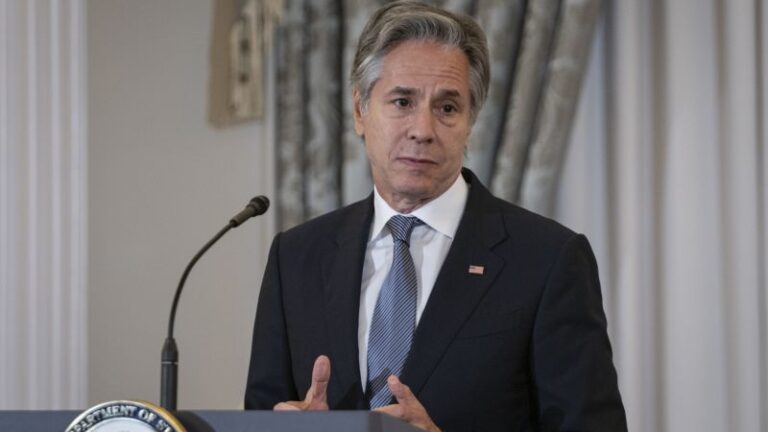CNN
—
U.S. Secretary of State Antony Blinken said Friday that Iran’s breakout time — the amount of time it would take to produce enough weapons-grade material for a nuclear weapon — is “probably a week or two” as Iran continues its nuclear program.
The assessment marks the shortest breakout time ever cited by U.S. officials and comes as Iran has taken steps in recent months to increase its production of fissile material.
“The situation we’re in right now is not a good one,” the top U.S. diplomat said at the Aspen Security Forum on Friday.
“With the nuclear deal gone, Iran was meant to have at least a year to gain the capability to produce fissile material for a nuclear weapon, but now it will probably do so in a week or two,” he said.
“They’re not producing the weapons themselves, but of course that’s something we’re tracking very closely,” Blinken added.
Blinken said U.S. policy is to prevent Iran from acquiring a nuclear weapon and that the administration wants to prevent that through diplomacy.
More than a year ago, a senior US Defense Department official said Iran could produce “enough fissile material for a bomb” in “about 12 days.”
The Biden administration has been engaged in indirect negotiations with Iran for more than a year, aiming to revive the Iran nuclear deal that it withdrew from in 2018 under the Trump administration.
Those efforts collapsed in late 2022 after the U.S. accused Iran of making “unreasonable” demands in connection with an investigation by the International Atomic Energy Agency (IAEA), the U.N. nuclear watchdog, into unexplained traces of uranium found at an undisclosed site in Iran. For months afterward, the administration continued to insist that the Iran nuclear deal was “off the table.”
Iran’s new president has signaled he is open to negotiating with the West, but a senior State Department official told CNN that he believes Iran has engaged in too many escalating actions in the years since talks collapsed and a return to the nuclear deal is now unlikely.
“We live in a very different world, a lot of time has passed and Iran has done a lot to make returning to the JCPOA impossible,” the official said.
The State Department also said recent elections in Iran are not expected to change the country’s behavior.
“We do not expect this election to bring about a fundamental change in Iran’s direction or policy,” State Department spokesman Matthew Miller said earlier this month. “Ultimately, it is the Supreme Leader, not the president, who has the final say on the future of Iranian policy, and of course we have seen the direction he chooses to lead Iran in. Of course, if the new president has the authority to take steps to curtail Iran’s nuclear program, end funding for terrorism, and stop destabilizing activities in the region, those would be steps we would welcome. But needless to say, we do not expect that to be the case.”


